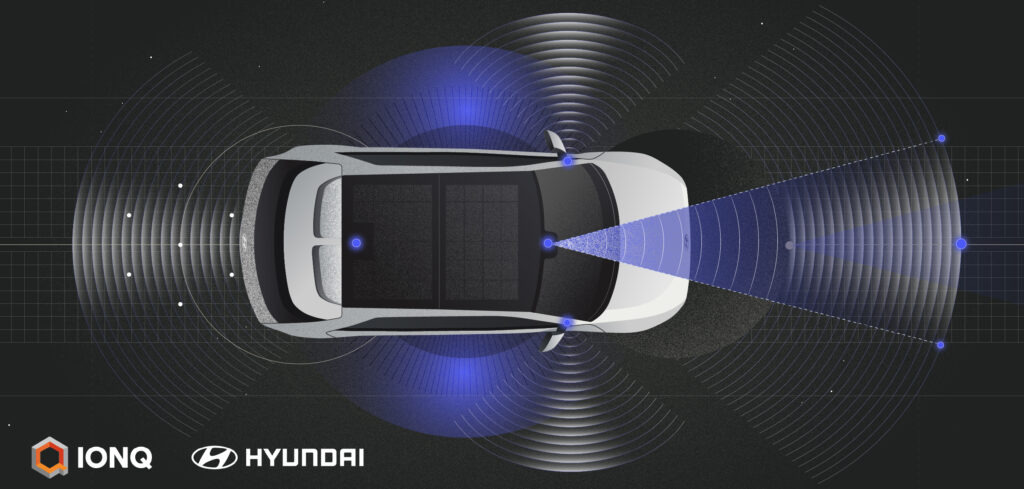A collaboration between the Hyundai Motor Company and IonQ will see the latter’s quantum computer machine vision algorithms being further developed. The system can conduct object detection on 3D data from autonomous vehicles. The pair will also use IonQ’s quantum computers to simulate electrochemical reactions of varying metal catalysts.
The newly announced projects build on previous work carried out by the two companies, increasing the role that quantum computers play in the development of smart, environmentally friendly vehicles.
To design and develop reliable, autonomous vehicles, IonQ and Hyundai are applying quantum machine learning to image processing. This consists of images, like road signs, being encoded into a quantum state for classification and object detection.
These first few projects have had initial success, leading Hyundai to conduct additional collaborative research with IonQ on several new techniques. The latest project resulted in the pair carrying out analysis on spatial and environmental data from lidar and other sensors to potentially improve a vehicle’s understanding of the location of objects, people and the environment around them.
Quantum machine learning techniques investigated by IonQ have demonstrated the potential to learn more quickly, be more effective in recognizing edge cases, generalize better, learn from lower-resolution or noisy data and capture complex correlations with a lower number of parameters. As a result, these technical advantages can lead to quicker, safer and more accurate decisions without the need for user input.
Hyundai has previously conducted studies into lithium compounds and the chemical reactions involved in battery chemistry. This has led the group to expand its current scope, resulting in new metal catalyst chemical reactions being evaluated for future vehicles. The combined insights and expertise learned from the quantum simulations will enable the OEM’s engineers to potentially develop higher-performance EVs at a lower cost point.
“IonQ’s continued work with Hyundai strengthens our beliefs that quantum will drive the next phase of innovation throughout the automotive industry,” said Jungsang Kim, co-founder and CTO of IonQ. “Autonomous vehicles are still in their infancy, yet the quantum-derived algorithms we’re testing today have the potential to shape the commerciality, efficiency and safety of such systems.”


